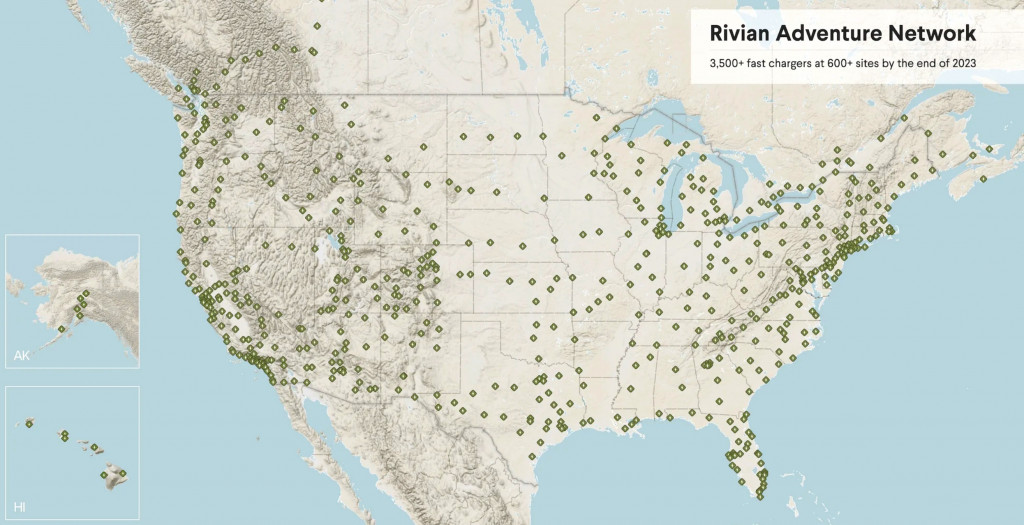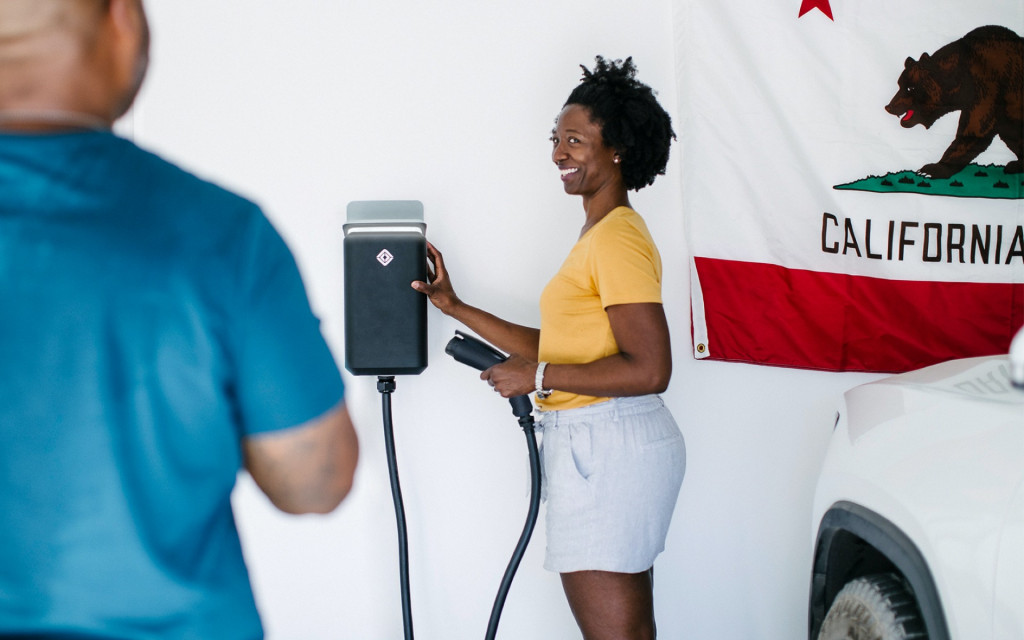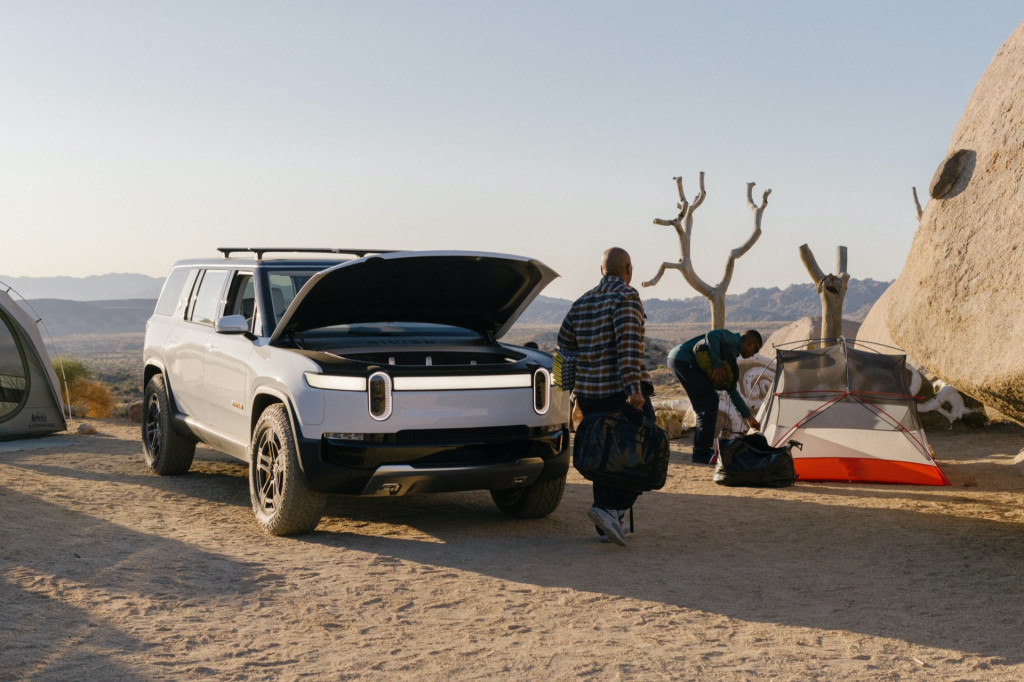Colorado’s 42 state parks, remote as they might be, will all soon be getting at least a couple of Level 2 electric-vehicle charging connectors.
The Colorado sites, though compatible with all modern EVs, will be part of a so-called Rivian Waypoints network, including a total of more than 10,000 Level 2 charging connectors to be installed by the end of 2023.
Rivian’s network will take form just as a wave of fully electric trucks starts to arrive, later this year—led by the Rivian R1T and R1S, the GMC Hummer EV, and the Tesla Cybertruck.
Rivian R1T
All those products have the potential to revolutionize the backwoods getaway experience, banishing tailpipe emissions and the clatter of an engine under the hood. But there’s one inconvenient truth: Backwoods charging stations, away from major highways, are hardly priorities for the big charging networks seeking to achieve profitability.
Only Riviansees its own backwoods chicken-or-the-egg dilemma as part of its business model and aims to solve it comprehensively, with its own hardware and close control over the interface and maintenance of hardware—echoing Tesla’s strategy with its original Supercharger network nearly a decade ago.

Rivian charging network plan – March 2021
The company last week took many of the details about its network it had already revealed in recent months and laid them out into one cohesive page about the Rivian Adventure Network.
On Wednesday, Colorado’s Parks and Wildlife Commission approved a partnership with Rivian that will have the company providing maintenance for 10 years and an opportunity to renew for up to another 15 years. Colorado hasn’t yet decided who will pay for the energy yet—and that may depend on Rivian’s pricing structure yet to be revealed.
Colorado says that it approached Rivian for the project. The electric truck maker then submitted a proposal to the Colorado Energy Office and Colorado Parks and Wildlife.

Rivian R1S
Comparable to what Tesla calls Destination Chargers, the connectors will offer 11.5 kw and will be capable of adding up to 25 miles of range per hour of charge to Rivian’s trucks. Also set to be available at shops, restaurants, and hotels, and they’ll bring “automatic charging for Rivian drivers”—likely through the Plug&Charge protocol that’s now also compatible with the Ford Mustang Mach-E, Porsche Taycan, and others.
Considering the timeline, it’s the most ambitious charging-network plan yet for an automaker. Rivian’s network will include more than 3,500 fast charge connectors at more than 600 sites—likely to be more road-trip-focused—by the end of 2023. The company says that the highway-based network will have multiple connectors at each site, which will often be located near cafes and shops.
The charging rates of more than 200 kw initially will yield up to 150 miles of range in 20 minutes in the R1T and R1S, the company says, and the chargers are capable of more than 300 kw in the future.

Rivian R1S
The network itself will be 100% powered by renewable electricity, Rivian says, with solar and wind energy used wherever possible through partnerships with utilities.
Rivian, like most other automakers, also promises to offer a branded home charger, with that same charge rate, plus wireless connectivity—thus requiring a 60-amp circuit for peak rates.
Another alternative, the Rivian mobile charger will plug into 120V and 240V outlets and provide up to 16 miles of range per hour plugged in, the company says, providing about a half charge overnight.
Colorado sees the Rivian partnership as an important building block coinciding with its “Recharge Where You Recharge” campaign. The state in 2019 adopted an electric vehicle mandate, and last year it approved direct sales of EVs.
